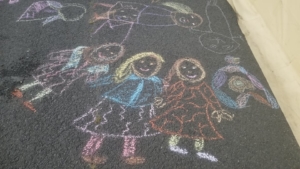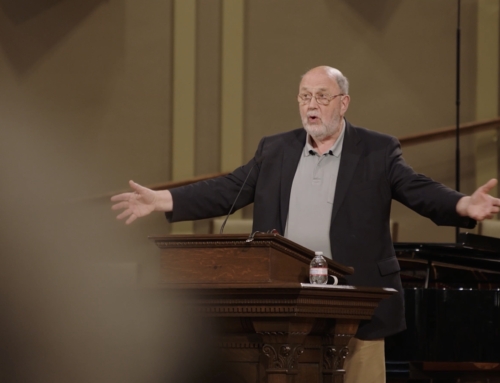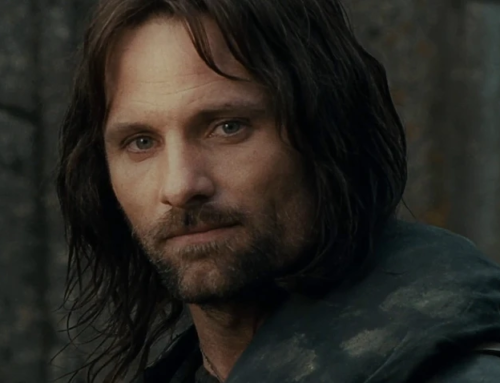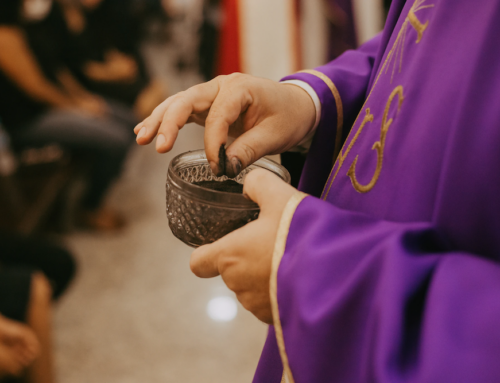What will it take to put things right in our world, or at the very least, to make things okay again? Prof. N.T. Wright raises these weighty questions in his lecture entitled, ‘How is Justice Done?’ from the course, ‘Themes in the Gospel of John’. It was his innocuous opening question which grabbed my attention immediately: Why do people read crime novels? I smiled as Prof. Wright mentioned his wife’s penchant for this literary genre. The grin on my face grew as he mused that she favours these books as ‘the long result of being married’ to him!
The Tidy-ness of Crime Stories
Some people may favour crime novels because by the end of the story the problem gets solved, or at least there is a satisfying resolution. This got me thinking that this might help to explain the popularity of true crime podcasts. A recent online pop-magazine article detailed not just a ‘top 10’ but listed 60 crime podcasts that ‘we’ve been hooked on’. Many bloggers suggest that the reason people cannot get enough is that these nail-biting stories offer an easy escape that gets the heart racing and divert our minds from the stress and strain embedded in the minutia of daily life. Some observe that people enjoy playing detective and immersing themselves in solving real-life mysteries. Others identify the podcasts that highlight the neglected stories of minoritized voices and people of colour or remember victims who have been pushed aside due to systemic injustices.
Admittedly, I have never listened to any of these podcasts. My interest in vicariously living as a super sleuth stopped when I closed my last Nancy Drew book (although I did watch every episode of Benedict Cumberbatch in his role as Sherlock Holmes).
Prof. Wright observes that deep within all human beings is a sense in which we know something is ‘not right’ and that this ‘not rightness’ ought to be fixed. One of the salient themes the Apostle John wants his audience to know from his Gospel is that justice actually matters.
The Enigmas of Unfairness
There are many enigmas of unfairness in the world where it seems justice is eschewed—in societies, neighbourhoods, churches, and families where inequities are not resolved tidily, as portrayed in children’s books or true-crime stories.
I recently talked to a friend of mine who is a Captain in the United State Air Force. She is stationed at Ramstein Air Base near Frankfurt, Germany. My friend told me about some of the work she and her team have been doing to assist the 35,000+ Afghan evacuees stopping through this way station. Many have been separated from their families. All have arrived in a strange country en route to another foreign place. For some, their possessions have been reduced to that which can be contained in a single plastic shopping bag.
My friend described the medical tents that have been set up on the flight line and how she and her team are among some of the first to meet the women, the children, and the men as they disembark from the C-17 military planes. She recounted the difficulties of language barriers and that the translators were few in number. Ascertaining the answer to the question, ‘Where does it hurt?’ is difficult to say the least. The stories of individual lives that have been upended and the details of the medical trauma that she and her team encountered are harrowing. As she spoke, I realised I was holding my breath. There are not only innumerable physical wounds that need tending, but the psychological trauma is ubiquitous, myriad, and deep.
As I reflected on the theme of justice in John’s Gospel, I wondered how many of the children would grow up asking, What will it take to be okay again? I thought of the mothers and fathers questioning how in the world their lives ever be put right. How will it get sorted out? Can there be a happy ending? What about those left behind?
I am doubtful that it will be sorted out like a crime novel—at least in the short term. I wonder if the stories of those who have been dislocated and separated from their families will end up being told on a podcast, a kind of tragic and unsolved mystery.
Sustaining Faith in an Unfair World
There are no easy answers. I was at a loss for words as my friend shared her experiences. I was also speechless as she talked about her hope, which is anchored firmly and sustained by an intimate relationship to our Lord Jesus, and to the brothers and sisters in Christ both near her in Germany and abroad.

After our call she sent me a few photos. One of the pictures shows words written on a blank health record sheet that is meant to detail symptoms, diagnosis, and treatment. Instead, there is handwriting that contains phrases that she is learning to say: Hello- Assalam|alaikum. May God’s mercy be with you. How are you? Have a great day! Goodbye- Allah hafia. The only thing I can see in the photo beyond the paper are the tips of her boots.
There are three pictures that follow in her string of messages. None of the people are pictured. Instead, there are two photos of chalk drawings. One depicts little girls holding hands, and another shows two bears with hearts, a lion, and a penguin. One photo is a child’s drawing of a person holding an umbrella in the rain. There is a flower. There are raindrops. The child’s name is written in English, across from the word, ‘kindness’.
In addition to the theme of justice, we find other themes in the Gospel of John: relationships, spirituality, freedom, truth, and power, all of which speak to me in some way about the world today and our collective need for God’s kindness. But the theme that struck me as I scrolled through my friend’s photos was, ‘beauty’.
Prof. Wright asks, ‘What is the role of beauty?’ How can we even think about beauty when there is so much damage, so much pain? Is it reckless and insensitive to devote our attention to beauty in the midst of gross injustice? Our experience of beauty is transitory, and so the cynic askes, Why bother? The sunset ends, the music stops, the child’s colouring books close. We want more, but beauty does not last.
Yet, beauty inspires hope and possibility. It is as Prof. Wright says, a broken signpost that signals and points to the beauty of the great story the Bible is telling–the beauty envisioned in God’s new creation. Beauty inspires and encourages us to be the people of Christ in the middle of the mess, to celebrate creation though life that is cruciform, and to be people concerned about justice in service of God’s glory. As the importance of beauty becomes a reality in our inner being by the Spirit, we bear witness to the beauty of the human vocation in the here-and-now—like my friend on the flight line of the air base in Germany. Like the chalk drawings. Like the child’s drawing of the umbrella in the rain.
As I said, there are no easy answers. Life usually isn’t sorted like a crime novel. The pain and horror of the family members and friends involved in the stories narrated on true crime podcasts continues.
The themes in John’s Gospel that Prof. Wright teaches in this course are important because they are the signposts—albeit broken ones—that signal the arrival of God’s kingdom on earth as in heaven. You will not only study the ways in which the Gospel of John sees things in a different light from the synoptic Gospels, but we also hope you will take away what mattered most to John about Jesus.
As we look ahead to our next course on the Gospel of Mark, a similar aim is in view. Mark looks at Jesus in a particular way, as John looks at Jesus in a certain way. Yet, the hearers in the first century, and today’s readers, are also looking back at Mark and John to ask how and why they selected the details and stories in the ways that they have done. How do each of these Gospels continue to narrate and translate the good news of Jesus Christ in ways that are intelligible for us today? How do they greet us in hope and with the welcome invitation of promise and blessing that says, May God’s mercy be with you…
We invite you to join us in the endeavour to learn about Kingdom living.
Jennifer Loop
Latest posts by Jennifer Loop (see all)
- Why You Need Lent: Two Perspectives - February 22, 2023
- How (Not) To Understand a Parable - October 20, 2022
- What People are Saying About ‘Ethnicity, Justice and the People of God’ - February 10, 2022







